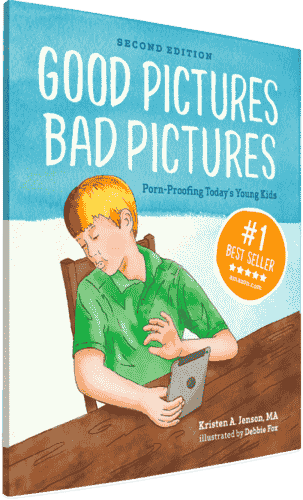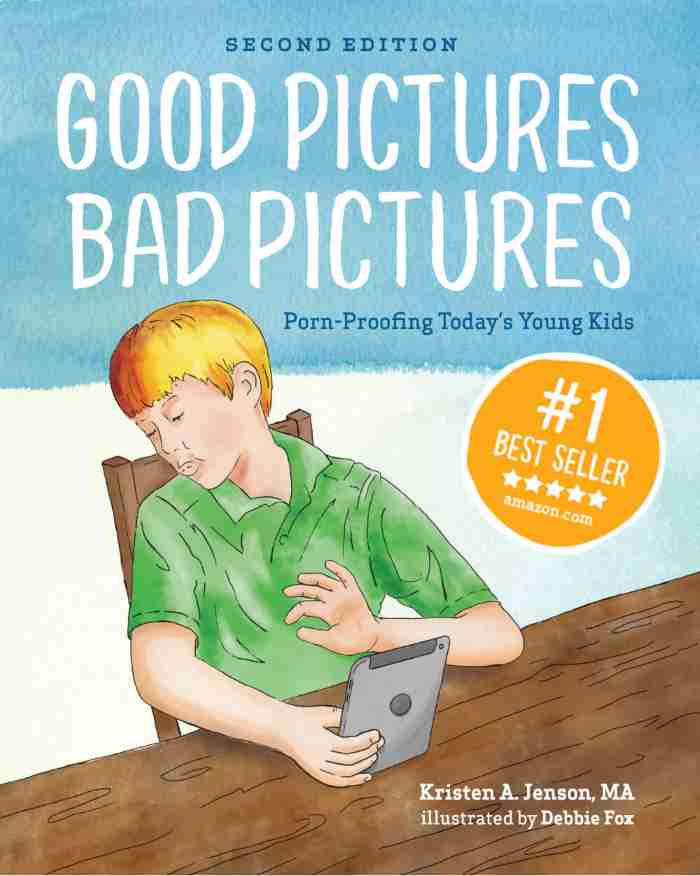Which Simple Words Keep Kids Safer from Sexual Abuse?

Simple words can empower kids. Think about it. If your young child were being sexually abused, could he or she describe what was happening? Can they name their body parts using the right terms? Can knowing a few simple words keep kids safer from a sexual predator?
Yes!
I often teach parents to use correct terminology for body parts as a way of reducing the shame often associated with sex and its counterfeit, pornography. Why? Because increased shame can make kids more likely to keep silent about pornography exposure.
But there’s another reason for calling a spade a spade, a penis a penis and a vagina a vagina. Your child’s ability to communicate sexual abuse.
You may be thinking, “Oh, sexual abuse would never happen to my kids!” I hope not, but the statistics are alarming. Child on child sexual abuse has skyrocketed with fully one third of the sexual abuse of America’s children committed by other minors.
And many believe this increase is due to easy access and exposure to pornography. Kids are hardwired to imitate what they see adults (and other kids) do.
Two Real Life CPS Stories
A Child Protective Services specialist shared the following stories with me recently:
“His Stick”
A 3 year old girl gets upset when she’s left with a teenage boy babysitter who’s a close family friend. She cries, “He’s always poking me with his stick!” She doesn’t know the word penis. Her mom thinks she’s being silly and simply tells her to ask him to stop poking her. The abuse continues for months before the girl’s parents learn what his “stick” really means.
This mom had done a great job at teaching her daughter about the female body parts, but didn’t think she needed to know, at that young age, the names of the male body parts. Sadly she did.
“Cookies”
A grandfather sexually abuses his young granddaughter when she’s in his care and calls her vagina her “cookies.” When she talks about what she and grandpa do, she tells her mom, “Grandpa likes to eat my cookies.” Mom thinks her daughter is talking about an imaginary tea party. Eventually her parents find out about the abuse when the daughter identifies the genital area on her doll as “cookies.”
Knowledge. Is. Power.

When kids are empowered with correct words, they can communicate accurately what is happening to them. And parents can more effectively teach kids to protect themselves. So from a young age, teach children the correct names for private body parts of both genders.
Ginger Kadlec, child advocate and blogger at Be A Kid's Hero, explains, "Knowing proper body part terminology is Step #1 in sexual abuse prevention training with kids."
We also advise parents to define the word pornography for their children. Just say the word! We give it power when we are too embarrassed to say it. When kids know what it is, they can more easily tell us when they see it.
As parents arm their kids with knowledge and use the correct names for their body parts, they empower their children to communicate more effectively. The result? Parents are better able to protect their kids from both pornography and sexual abuse, as well as discuss healthy sexuality as children grown and mature.
You CAN build a porn-immune kid!
[[CTA]]


Good Pictures Bad Pictures
"I really like the no-shame approach the author takes. It's so much more than just 'don't watch or look at porn.' It gave my children a real understanding about the brain and its natural response to pornography, how it can affect you if you look at it, and how to be prepared when you do come across it (since, let's face it... it's gonna happen at some point)." -Amazon Review by D.O.






